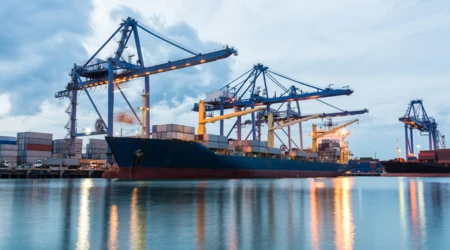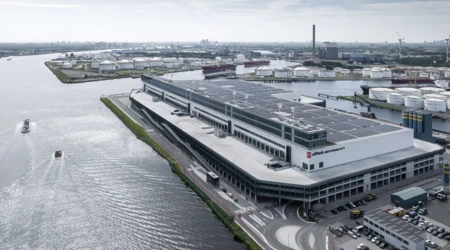City distribution
The distribution of consumer goods into the cities remains an impotant topic. Without the concept of city logistics, shops remain empty, construction sites have no materials to build with, residents do not receive parcels and their waste cannot be not collected. A well-functioning urban logistics system is therefore crucial for a vital, vibrant and liveable city. At the same time, urban logistics is a major source of harmful emissions and nuisance. It is therefore very important to work on a sustainable and future-proof urban logistics system that takes better account of the externalitities and available space in cities.
Within city logistics we help municipalities, as well as urban regions, regional and national authorities as well as developers and private companies with vision development and practical solutions on sustainable urban logistics combined with concrete action programmes and applicable policy advice. Special in our approach is that in our research and advisory work, we not only look at what the ambitions are, but also at what can be realized from the business community and logistics sector. After all, they are the ones who have to implement it.
The distribution of consumergoods into the cities remains an impotant topic. Without the concept of city logistics, shops remain empty, construction sites have no materials to build with, residents do not receive parcels and their waste cannot be not collected. A well-functioning urban logistics system is therefore crucial for a vital, vibrant and liveable city. At the same time, urban logistics is a major source of harmful emissions and nuisance. It is therefore very important to work on a sustainable and future-proof urban logistics system that takes better account of the externalitities and available space in cities.

Source: Buck Consultants International (2023)



Strategy and market analysis on City Distribution Hubs
Our expectation is that as Urban Vehicle Access Regulations (UVAR) schemes on access to urban areas increase, there will be a greater need for market players to use urban hubs. The introduction of ZE zones urban logistics by 1/1/2025 in the Netherlands or similar measures in other (European) cities could be a turning point and a breakthrough. Indeed, to date, there have been mixed successes with city hubs. Having contacts in the business community and thus generating sufficient cargo has proved necessary and is not always successful. We analyse for municipalities and regions the space demand for city logistics hubs, provide insight into the different manifestations and the functional and logistics requirements of hubs. Our City Distribution Database provides an up-to-date overview of existing hubs and, by determining bundling potential, we can estimate hub demand in European cities. By developing a vision on city distribution hubs and providing action perspectives, we then help municipalities/regions translate them into concrete policy measures to encourage bundling via city hubs.

Source: Buck Consultants International (2023)
Feasibility studies and implementation plans
Your municipality wants to explore whether a ZE zone for urban logistics is a suitable measure to improve the liveability in your city centre. For these explorations, we carry out feasibility studies and/or develop implementation plans that allow municipalities to make a well-founded and fact based decision on whether or not to introduce ZE zones and/or pursue other measures. We have extensive experience on this issue and have advised more than 20 big and medium sized cities in the Netherlands recent years. Currently we manage the implementation of these zones in context of the govermental programme SPES on behalf of the Ministry of I&W (see www.opwegnaarzes.nl) this will lead to the implementation of at least 30 zero emission zones for urban logistics by 2025-2030.
Local and regional action agendas for ZE City Distribution
To accelerate the transition to Zero Emission City Distribution, (local and regional) action agendas are needed. Our agendas always try to focus on who has what role in the concrete implementation of actions and measures being devised. In some municipalities/regions, it can be helpful to draw up an action agenda with stakeholders and also endorse it with a covenant, local green deal or manifesto.
Smart Logistics
Smart logistics offers public authorities opportunities to improve dynamic traffic management and to improve enforcement (if needed) of local rules, for example in terms of accessibility and UVAR schems of a city centers (time of day, location and type of vehicle). Next to that, the applications of smart logistics offer business opportunities to logistics companies and their clients. Smart logistics solutions improve efficient transport and warehousing, but they also facilitate the (inter)connectivity between different logistics networks, for example for the exchange of transport orders between different parties and/or modalities.
The concept of smart logistics is today is mainly applied within the area of inner city distribution. Improving inner city distribution structures is an important topic for the vast majority of European cities. It is also a challenging topic due to the sometimes contradictory interests of inhabitants on the one side and entrepreneurs on the other side. City distribution concerns accessibility and efficient transport within the cities, but it also effects healthy living and air quality. Therefore, the need for defining and implementing smart solutions for city distribution increases, from both an organizational and technological perspective (f.e. geofencing).




07 June 2023











